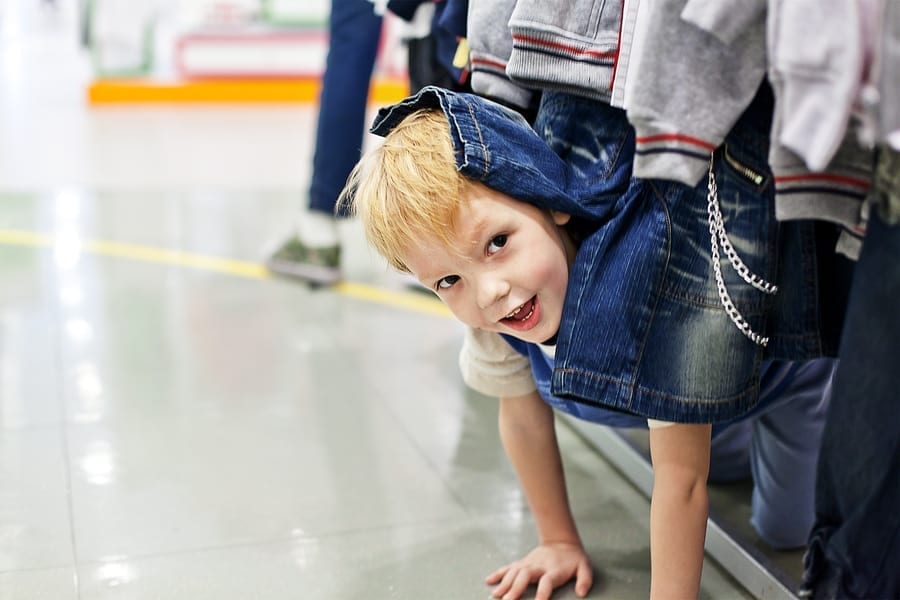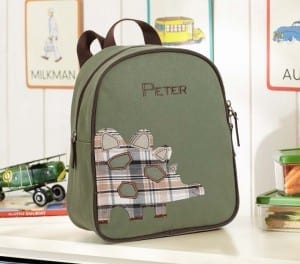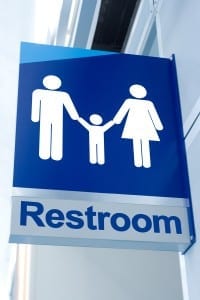
Those three seconds Princess Two hid behind the shoe rack at the store seemed like an eternity. I just KNEW she was gone forever. I can’t even describe the number of horrible things that went through my head. It was like watching a news channel dedicated to all the bad things that happen to kids in the world… And then the giggles began. Hers. Not mine. Trust me, I did not think this was funny. Not one tiny, little bit.
This little incident got me to thinking more about how do you teach your kids to be safe – not scared and fearful – but to protect and arm themselves not only at the store, playground or walking to school but when you are traveling. I knew a lot of the same safety rules you teach at home apply for traveling but I wanted to know more… I sat down with Jay Charness, who runs an organization called A.P.E, which stands for Avoiding Predators Everyday. He focuses on teaching child safety and women’s defense classes in Colorado. Who better to ask for tips on teaching kids travel safety. (Princess One and I attended one of his classes last year after she came home from preschool in tears, crying about a “little girl named Jessica was stolen…” Highly recommend his classes.)10 Travel Safety Tips For Kids
1. Arm your child with basic knowledge.
Your child should be armed with basic knowledge such as, your cell phone number and home address. If your child is too young, see #2 and #3. When you are traveling make sure your child knows the hotel you’re staying at. If they are to young to remember names, point at the logos on the hotel and help them describe it. “A big H inside a circle. Or a big red R.”2. Emergency Travel Card.
Keep an emergency travel card containing identification and contact information in your children’s pocket. (If you have really little ones you should consider pinning the card inside their clothing so they don’t “play” with these.) This will contain a bit more information than an ID bracelet will have, such as your hotel, additional emergency contact phone numbers. And if you’re traveling internationally, this card should be written in both your native language and translated into that country’s language. You should also carry a recent photo of your child. That’s fairly easy to do these days with cell phone cameras.3. ID Bracelet.
This isn’t necessary for older kids as they know your phone number, home address, name, etc. But for little ones it’s awesome. I’ve found the emergency travel cards can be torn and lost by little ones who think they’re fun to eat and tear up. Princess One has worn a medical ID bracelet since she was two and since our little shopping excursion, Princess Two doesn’t leave home without hers (she does know how to say her name and mine now).4. Have a plan if you become separated.
Kids need to know the hotel’s name and where you’re planning to be and visit during your travels. Parents should also have a plan in case you become separated, including a predesignated spot to meet. This spot though doesn’t need to require a lot of effort to find; people get lost and when you’re scared it can mean REALLY getting lost. Jay pointed out “you never want to teach your kids to walk somewhere if they are lost”. With that in mind, you want to teach your children to look around and find where the nearest place is you can make a purchase, such as a cash register. People working behind the register work in the establishment and are more trustworthy in helping to reconnect you and your child; they will have access to a phone to either call you directly, page you over the loud speaker or call the authorities.5. Who is OK to ask for help?
For most kids adults seem like the best place to turn to when you’re lost. But not just any adult, according to Jay. “You’re not going to really be able to teach your kids to go find an American Consulate when you’re traveling abroad so the things we teach at home apply when we’re traveling. We never want to teach our kids to walk anywhere if they get lost. If you are at place where they sell something, find the closest person at a cash register to ask for help. If you are at a park, kids should look for a mom with kids. If that isn’t an option a dad with kids and then a woman. The last thing you want to teach your child to do is to start screaming “I’m lost! Help!” You don’t want to put it out there in case there is a predator around.”6. Use your body as a weapon.
Kids are typically taught not to be rude and not to hurt people. But as Jay points out, if a child doesn’t know someone who asks them for help or to come with them they need to remind that person, they don’t know them. And do so loudly. This can simply be done with, “I don’t know you. I can’t help you”. Most adults will get the point and walk away. For those who don’t and are up to no good, a child needs to know how to protect themselves. Jay first suggests, stating “I don’t know you. I can’t help you. And then running away”. If things escalate and the adult become physical there are a few escape tactics Jay suggests. “The child should hit the ground on their backs and start kicking as hard as they can; like they’re peddling a bike. This does not hinder someone from grabbing them but it buys them time, gets attention from drivers and passerby’s and they can use this opportunity to roll away and then run. Another tactic is to wrap themselves around the assailants leg – criss cross apple sauce or sitting Indian style – the point is to try to use their weight to bring the person down, then the child can roll away and run.” As parents, we try to teach our kids not to hit, not to hurt others so it will be important to stress you will not ever be upset with a child if they hurt someone if they are trying to protect themselves. (This video shows a few of the escape tactics kids can use.)7. Forgo the Cute Personalized Bags.
I know the cute personalized suitcases and backpacks with your child’s names look super cute in the Pottery Barn catalog BUT, and yes it’s a big BUT don’t do it. This is one of the main things child safety experts say not to do. “Never dress children in clothing that displays their first or last names. It can prompt unwelcome attention from people looking for an opportunity to start a conversation with your child.” (If you must make these purchases stick with the child’s initials.)

8. Pretending to be an official.
I’m pretty sure I’ve been duped by people pretending to be officials, especially in Italy on the trains but that just cost me a few euro. For a kid though, if someone who seems to be an authority figure – police officer, security guard, staff employee – comes to them and claims they are in trouble or that you have been hurt and they must come now, it can be pretty scary. So I asked Jay, what should they do” “I have two rules I like to give. Kids need to say immediately, ‘I need to have an adult to talk to you’. Legally, at least in this country, authorities do need to have an adult present to speak with a minor. The authority figure should respond with ‘ok, lets get an adult’. If they get agitated and forceful, then the kid should RUN. The exception is if the child did do something wrong… I teach my kids that if they run and it turns out it was law enforcement, we’ll deal with that later. It’s better to not take chances.”9. Teach “Not My Parent”.
We’ve all seen the tantrums kids can have and when a parent is escorting the flaying, screaming child out of our presence we’re usually somewhat relieved. BUT what if said parent isn’t really the parent? And said child is freaking out because it’s not their parent? In the child safety classes Jay teaches, one of the techniques he tells kids about is “going bananas”. Children are taught to scream, kick, and freak out. But, in this case, they should also know to say, “Not my parent. Help!” This one phrase can garner a lot more attention and a few security guards.10. Rest Stops and Public Restrooms.
Ever since I went camping and a woman was raped in the camp ground bathrooms, I’ve been pretty leery of ever letting the Princesses enter one alone. They’re still too little to climb onto the potty themselves but one day…“All kids are different and handle things differently so you the parent need to decide when they’re ready to go in alone,” Jay told me.” With my kids, who are eight and 11 year-old girls, I wait outside the door. They enter, I wait about 30 seconds, prop open the door and say – ‘hey you ok. Do you need anything?’ That way I know they’re ok when they answer and if someone is in there they know I’m outside. Parents with kids of the opposite gender who are too old to go with them into the restroom, can also slightly open the restroom door, ask if someone is in there, if no answer, they can enter the restroom with them. People may think they’re strange but if you’re protecting your kid, who cares. As parents, we have two jobs. To protect our kids and ourselves.”


Elaine Schoch
Elaine Schoch (pronounced the German way – Shock) is an award-winning travel writer, wine judge, certified by the Wine & Spirit Education Trust (WSET) Level 2 and founder/editor at Carpe Travel. She is married to The Husband and has two kids, who’s interest and knowledge in wine is quite extensive. Not to mention the stamps in their passports.
Subscribe to Sip in More of the World
Elaine Schoch is an award-winning travel writer, wine judge, American Wine Specialist and certified by the Wine & Spirit Education Trust (WSET II). At Carpe Travel she shares wine travel destination guides for ALL WINE LOVERS – from novices to experienced pros – to help them plan their wine adventures, arming them with insider tips, must-visit spots, and things to see and do beyond the vines.





This is a great post with such fantastic tips! We have lost kids while traveling and your mind definitely wanders to the the terrible things that can happen.
It’s the worst feeling – for me. My kids tend to think it’s funny to see me so scared. Thanks for reading!
I am no longer certain the place you’re getting your info, however good topic.
Yep, I have been in this place more times than I care to admit. I have never heard the idea of teaching “not my parent.” That is genius!
I know, I thought that was a great idea too! I’m still afraid my kids may use it on me during a tantrum though, but I kinda like the idea of them being told by a police officer it’s “not ok” to do that. =)
These are great tips, scary to think about, but so worth it. When I was in high school I went to London with my parents. The tube doors closed with my dad and myself in the subway, and my mom on the outside banging to get it. She has a bit of anxiety in these situations. My dad went back to get her. My husband and I now have a plan should we get separated like that.
I’ve heard of that happening to families when they travel. I usually pick my kids up now since they’re still small enough for me to do that. (At least it was your mom who was separated and not you, being a kid and all.)
Cheers to warrior parents! I can’t even imagine myself being one! Will bookmark this for the “future!”
It’s the public restrooms that freak me out the most. If I had it my way, but son would use the women’s until he was 12…
I know. My girls are getting old enough and asking to go in alone. Not really ready for that just yet, 12 might be the magic number. =)
The thing about law enforcement? So good. I’ve always had trouble with that one. Great post!
I never thought of having my kids look for the closest cash register but that is a great tip. As is the “not my parent” tip too – I will definitely have to talk to my kids about that one soon.
I know they’re not supposed to leave the spot they’re at but if they can see a cash register it’s a great place for them to head to for help. I was actually afraid to teach my kids about the “not my parent” thinking they might use that against me one day. So far so good. 😉
Very nice of you to post such a helpful post. I am a bit nervous of the toilet situation to be honest. I guess I have to find bathrooms first thing when I go to places.
Every family loves to go on vacation, whether you’re going to known places or unknown place. you should take care of your child while travelling. I like the way you represent all suggestions for safety. I just want to mention more safety tips specifically if you are traveling with a baby, ask about the hotel’s crib safety. Second, scour the playground for potential dangers. Third, make sure that play areas are age-appropriate for your child and so on.
Excellent point. Thanks for the additional tips.
Really very helpful and must post for parents. Thank you very much Elaine for these fanatastic tips.
It’s a must read article for every parent because when we travel with family and kids theres lots of safety concers every parent has to take. Thank you for sharing this article with us.
This is a nice blog as kids must have travel safety. There are different survival kits for travel.
I liked that you pointed out that you should teach your kids about American consulates or embassies when you are traveling aboard. That way, they know where to go if something goes wrong. That does seem like a super good thing to be aware of before going aboard for educational purposes.
Thanks! Yes, it’s the little things that can make a huge difference.
Excellent post!Really helpful for parents.Safety of kids while travelling is big task.Definitely we will keep these safety measures.Thank you for sharing
Excellent post!great post for parents.Safety of kids while travelling is big task.Thank you for sharing
This is gonna be helpful for a lot of them. This issue has made at least some of them not to travel with kids, anyway good one !!
exllent post thanks
thanks for the information
Wow, I appreciate your tips for teaching kids to be safe while traveling. We’re actually looking for a childcare service. We’d like to be sure our child knows how to stay safe while with her teacher.